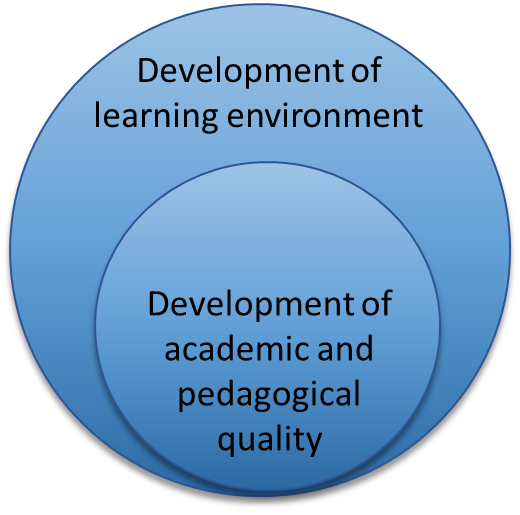Mandate for the study programme leader - Kunnskapsbasen
Mandate for the study programme leader
Decided by: Rector
Valid from: 1 January 2016
Main Page: Education Quality at NTNU
See also: Management of study programmes | Programme council
Norsk versjon: Mandat for studieprogramledere - utdanningskvalitet
A robust academic and administrative framework is a prerequisite for good quality in our study programmes. This mandate elaborates on NTNU’s expectations regarding the function of study programme leader, and the conditions for this work.
The study programme leaders’ tasks
The study programme leader contributes to development of the learning environment, and the academic and pedagogical quality of the study programme. The study programme leader’s function is advisory, and the tasks are carried out in close dialogue and cooperation with deans, heads of department, course coordinators, teachers and students. Development og quality in study programmes is a collective responsibility for the academic community. The study programme leader leads the study programme council and reports to the responsible line manager. The study programme leader’s tasks are described below, following the illustration of how development of academic and pedagogical quality lays the foundation for the development of a comprehensive learning environment.

Development of academic and pedagogical quality
The study programme leader performs academic and pedagogical leadership for the study programme, which amongst other things includes to:
- develop the study programme’s academic content, profile and relevance
- ensure that the study programme’s learning outcome description expresses the programme’s ambitions, and that the included courses contribute to the students’ accomplishment of the study programme’s learning outcomes
- develop a programme design with proper alignment between the study programme’s learning outcome description, the learning activities and the assessment methods, and to make sure the courses are well coordinated horizontally and vertically
- ensure that the study programme and the teaching activities are research based, and to work with the line managers to ensure that it is performed by robust research communities
- facilitate dialogue and development of academic and pedagogical quality of the study programme in relevant fora and processes at the department and faculty level, and to follow up the requirements regarding quality work as described in NTNU’s quality system for education
- contribute to the students’ development of a strong and independent academic identity within the study programme’s area
- contribute to develop a mutually beneficial relationship to external parties (practice field/profession/work life/society) within the study programme’s area
Development of learning environment
The study programme leader contributes to develop a good learning environment for the students following the study programme. (Learning environment is understood as the physical, psycho-social, organizational, digital, and pedagogical contexts in which the students’ learning take place.) This includes, among other things, to stimulate the students’ development of shared identity and affiliation to the programme, and to development of good relations between students, academic staff, and administrators.
Conditions for the study programme leader’s work
Good management of study programmes requires sufficient framework contitions for the work, such as allocated time, administrative support, resources, and access to relevant arenas of dialogue and decision-making.
- All study programme leaders must have an agreement regarding allocated time. The normal is a 20 % position, but this may be adjusted up or down based on the programme’s size, complexity and development needs. A certain duration of the function must be strived for, in order to ensure continuity of the work
- The allocated time frame must allow for the study programme leader to develop their competence in study programme management
- All study programs must have administrative support in accordance with the study programme’s needs
- It must be clear who the responsible line manager is (dean or head of department)
- Study programme leaders must have access to information and relevant arenas for dialogue and decision-making, providing the necessary basis for and opportunity to develop the quality of the study programme
- Study programme leaders should minimum be formally qualified for employment at associate professor/professor level, and should hold a permanent position at NTNU
